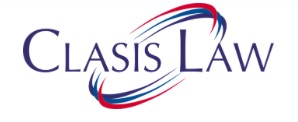18 February, 2020
Recent Amendments to Patents Rules and Procedures
The Patents Act, 1970 has been amended in 1999, 2002 and finally in 2005 to provide for product patents in chemicals, pharmaceuticals, food and agro-chemicals and accommodate other incumbent provisions in accordance with Trade Related Aspects of Intellectual Property Rights (TRIPS) which is an international legal agreement between all the member nations of the World Trade Organization (WTO).
In line with the aforesaid objective, the Government of India through the Ministry of Commerce and Industry (Department of Industrial Policy and Promotion) published Draft Patents (Amendment) Rules, 2018 vide its notification dated December 4, 2018, whilst inviting objections and suggestions from all interested stakeholders and the general public. Thereafter on a consideration of the objections and suggestions received from the public, the Central Government has made suitable amendments to the Patents Rules, 2003 (“2003 Rules”), and published the Patents (Amendment) Rules, 2019 in the official gazette on October 18, 2019 (“2019 Amendment”). Consequent thereto, the Indian Patent office has re-published its Manual of Patent Office Practice and Procedure version 3.0 (“New Manual”) on November 26, 2019 in compliance with the aforesaid amendments to the 2003 Rules. Key takeaways of the recent amendments to the Indian patent practice and procedures are summarised below.
1. Change in the manner of filing document with the Patents Office
In terms Sub-rule 1 (A) of Rule 6 of the 2003 Rules and the proviso thereto, pursuant to electronic submission of documents, patent agents were obligated to physically submit the original documents within 15 (fifteen) days of filing the same electronically.
The 2019 Amendment has done away with the aforesaid provision which mandated physical submission of documents after e-filing the same and provides that documents will be required to be physically submitted (after electronic submission) only if specifically called upon to do so by the patent office. Failure to submit the requested documents in physical form, in the prescribed time would result in the documents being deemed not to have been filed.
In line with the amended rule paragraph no. 13 (b) of the New Manual clarifies that when any document is to be physically submitted, only one (1) copy of such document shall be submitted to the appropriate patent office.
Documents for small entities and start-ups
The second proviso to Rule 7 of the 2003 Rules, stipulated that, for a small entity to claim benefits under the Patent Act and Rules, such entities were required to submit Form 28, with every document for which a filing fee is specified.
According to the new rules, the second proviso of rule 7 is substituted to read as follows:
“Provided further that in the case of a small entity, or start-up, every document, for which a fee has been specified, shall be accompanied by Form-28.”
Accordingly, the 2019 Amendment has extended such benefits to start up's in addition to small entities by also allowing start-ups to file Form 28; which is the designated form for declaration of small entity or start- up status.
3. Seeking expedition examination
In terms of Rule 24 (c) of the 2003 Rules, only start-ups and applicants indicating India as an ISA or electing India as IPEA in a corresponding PCT application were allowed to file a request for expedited examination.
The 2019 Amendment has enlarged the scope of the aforesaid rule by increasing the list of eligible applicants and now provides that the following entities shall be allowed to file requests for expedited examination of theirapplications:
-
Start-ups;
-
Applicants indicating India as ISA or electing India asIPEAinacorresponding PCTapplication;
-
Small entities / MSME's;
-
Female applicants;
-
Departments of the Government;
-
Institutions owned or controlled by the Government;
-
Institutions wholly or substantially financed by the Government;
-
Government companies;
-
Applicationpertainingtoasectorwhichisnotified by the Central Government on the basis of a request from the head of a department of the Central Government; and
-
Applicants of countries whose patent offices are in an agreement/arrangement with the Indian patent office.
The New Manual has brought about appropriate changes whereby the aforesaid additional categories of eligible applicants have now been included in Form 18A.
4. Paymentoftransmittalfeesandcertifiedcopy fee no longer applicable
In terms of the 2019 Amendment, PCT applicants will no longer be required to pay a transmittal fee to the Indian patent office whilst filing a PCT application. Further, fees for preparation of a certified priority document copy have also been waived as well.
5. ChangesinForm18A
In terms of the 2003 Rules, only start-ups and applicants indicating India as ISA or electing India as IPEA in a corresponding PCT application were identified in Form 18A.
In conclusion, the 2019 Amendment is an appreciable step on part of the legislature to fulfil its commitments towards more efficiency and transparency in the functioning of the Indian Patent Office by automating almost all activities of the Patent Office. Further, the expansion of the list of applicants who are eligible for expedited examination of their applications, the waiver of PCT transmittal fees and fees for receiving certified copies is aimed to encourage filing of patent and PCT applications respectively and promote ease of doing business in India.
For further information, please contact:
Vineet Aneja, Partner, Clasis Law
vineet.aneja@clasislaw.com





